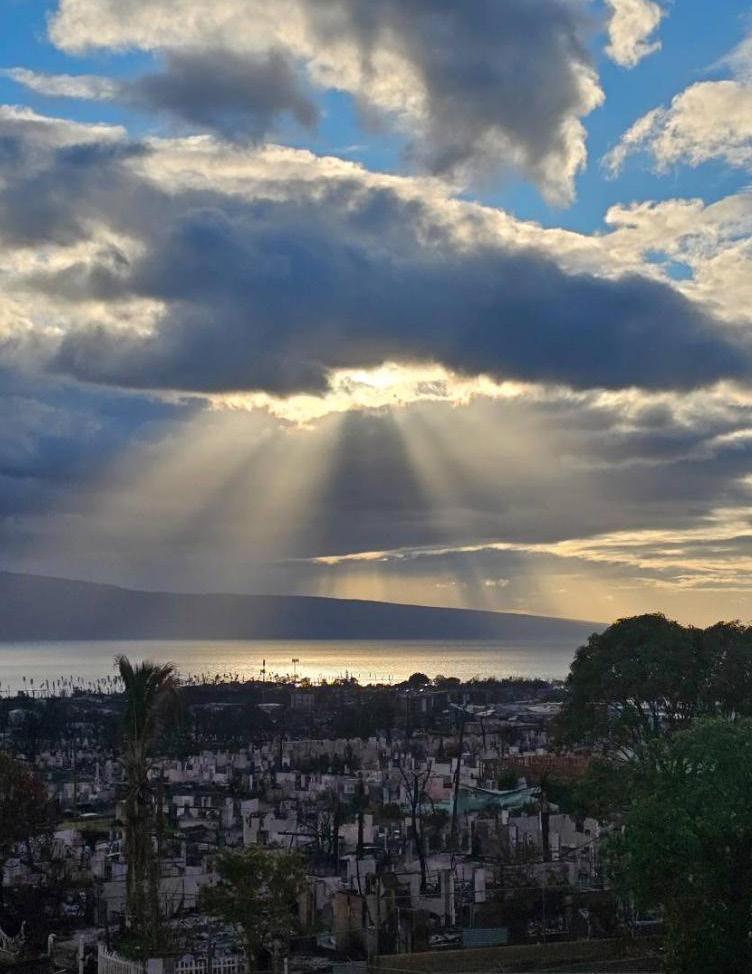
2 minute read
Navigating Our Way
from No Nā Kānaka
Navigating our way
The devastating August 8th Maui fires claimed 101 lives, displaced countless families, destroyed 2,200 structures and caused an estimated 5.5 billion dollars of damage. Disasters create their own ecosystems, complete with their own systems of power and governance, their own economies and workforce, their own ills and dysfunctions, and their own social dynamics.
Despite immense obstacles, the local community activated in powerful ways immediately in the wake of the disaster. Local residents, ‘ohana, companies, nonprofits, community organizations, churches, and cultural groups set up robust mechanisms to provide direct aid in the areas of communications, transportation (initially by boat or helicopter until roads opened), meals/ food, water, medical supplies, hygiene products, mental/emotional health support, women’s health, maternal and infant care, elder care, support for displaced students and teachers, immigrant support, and more.
As donations of food, water, and other essential supplies flooded into Maui, community groups quickly stood up hubs at neighborhood parks, community centers, warehouses and parking lots, or personal homes, to receive and distribute these essential goods to impacted families. These hubs quickly coordinated their efforts to maximize efficiency and ensure that ‘ohana received what they needed when they needed it. It is important to note that the bulk of this work was activated and sustained without federal or private funding.
These community-led, relationship-based systems continue to grow stronger as Maui embarks on the long voyage of healing ahead.
Rather than viewing impacted communities as passive recipients of aid and as ancillary to aid efforts they must be recognized as the very heart of the disaster response and recovery. They are the navigators of the long voyage of healing that lies ahead. Community-led efforts provide a critical bridge between external resources and those in need of support by understanding how best to deliver services in ways that allow local families to retain their sense of dignity and autonomy. It is essential for external entities to orient themselves to the community being served.
Restoring the rightful role of communities as the navigators of their own destinies amplifies community empowerment and strengthens mechanisms for ongoing resiliency and ‘ohana wellbeing.


